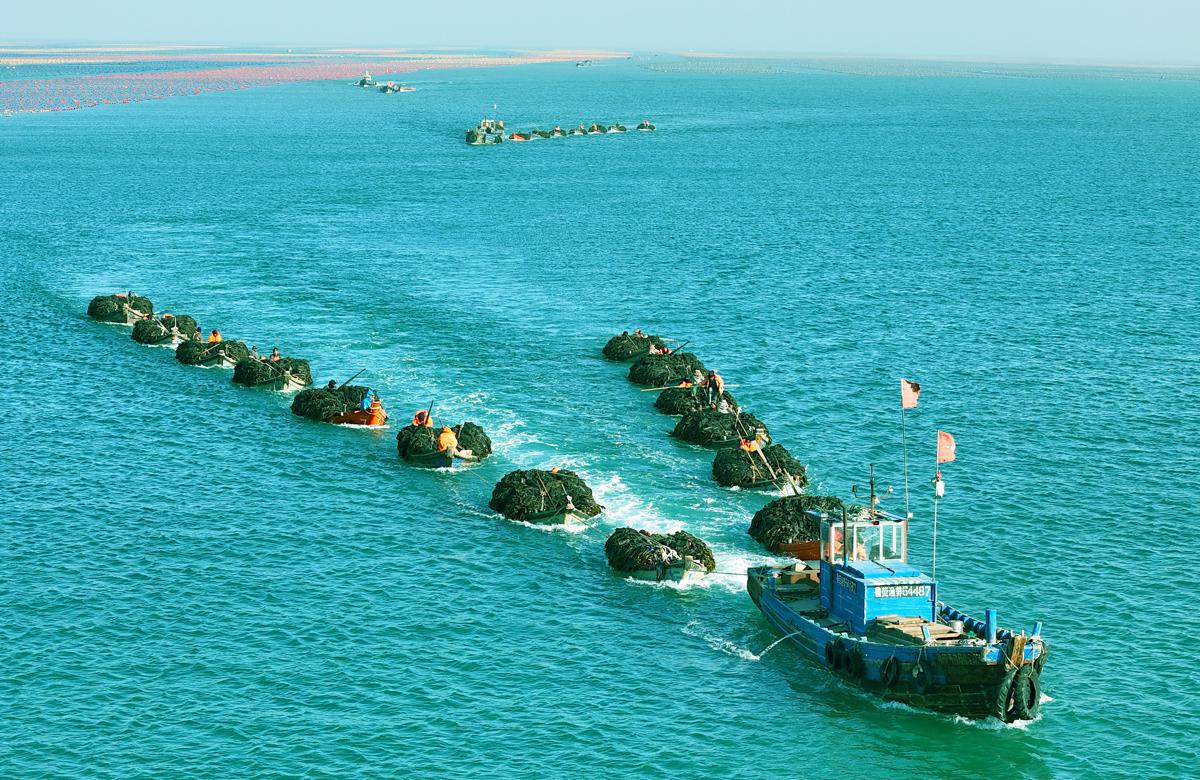Experts call for blue economy synergy
By Hou Liqiang and Cheng Yu in Haikou | China Daily | Updated: 2024-04-01 00:17

Officials and experts have called for forging a global blue economy partnership to address fragmentation and other challenges facing marine governance, amid maritime tension that is threatening the world's economic prosperity and overexploitation that is jeopardizing ocean sustainability.
They made the remarks during the 2024 Regional Comprehensive Economic Partnership Youth Dialogue on Regional Cooperation in Marine Economy, which was held on Saturday in Haikou, the capital of Hainan province.
Addressing the event's opening ceremony, Liu Zhenmin, China's special envoy for climate change, highlighted the great challenges facing global marine governance.
Currently, around 90 percent of goods in international trade depend on maritime transport. However, the Red Sea crisis has disrupted the global supply chain, he said.
The crisis has forced cargo ships that sail between Asia and Europe to avoid the region, he said. Besides increasing the sailing time by 10 to 15 days and quadrupling shipping costs, the disturbance is expected to result in a tenfold hike in insurance premium for cargo ships.
He said the fact that the ocean is not well protected with overfishing a prominent problem also makes further enhancement of effective global ocean governance an urgent necessity.
"Research shows that only 7.9 percent of the world's marine areas are under effective protection, and about 40 percent of marine fishery resources are on the brink of depletion because of overexploitation," he said.
The climate envoy stressed that the international community urgently needs to form synergy to improve global marine governance, which is now fragmented.
Currently, issues related to marine governance, such as fishery, environmental protection and scientific research, are managed by different governing systems and institutions. "There is a need to establish relevant coordinating bodies," Liu said.
He called for intensified efforts at the international, regional and subregional levels to ramp up marine observation and data collection, as well as strengthen international cooperation in marine scientific research.
Chi Fulin, president of the Haikou-based China Institute for Reform and Development, made a series of suggestions to promote the integration of China-Association of Southeast Asian Nations coastal and marine ecosystem conservation.
China and ASEAN, for example, can explore possibilities of setting up a joint committee for sustainable marine development, and establish cross-sea marine protected areas and nature reserves.
They can also launch a joint initiative to develop marine industries with low energy consumption and low emissions, and jointly establish marine science and technology innovation consortia, he said.
He proposed the establishment of a China-ASEAN blue carbon trading market, following joint efforts to gradually establish a technical method and standard system for monitoring and surveying blue carbon.
Ong Tee Keat, president of the Belt and Road Initiative Caucus for Asia Pacific, said that blue economy is an emerging multisector economic turf that warrants multilateral collaboration to better manage the many aspects of oceanic sustainability, ranging from sustainable fisheries and ecosystem health to pollution prevention.
"Against the prevailing backdrop of rising geopolitical tensions across the world, this is indeed a tall order for flagging global governance," he said.
He said that China's experiences and expertise in sectors such as shipbuilding, fishery and aquaculture management are sufficient to empower its neighbors to build their respective blue economy architecture.
Under the theme of "Building a Blue Economy Partnership Together", the event was co-hosted by the China Institute for Reform and Development, China Daily, China Oceanic Development Foundation, the Center for Strategic and International Studies in Indonesia and the Belt and Road Initiative Caucus for Asia-Pacific in Malaysia.
























